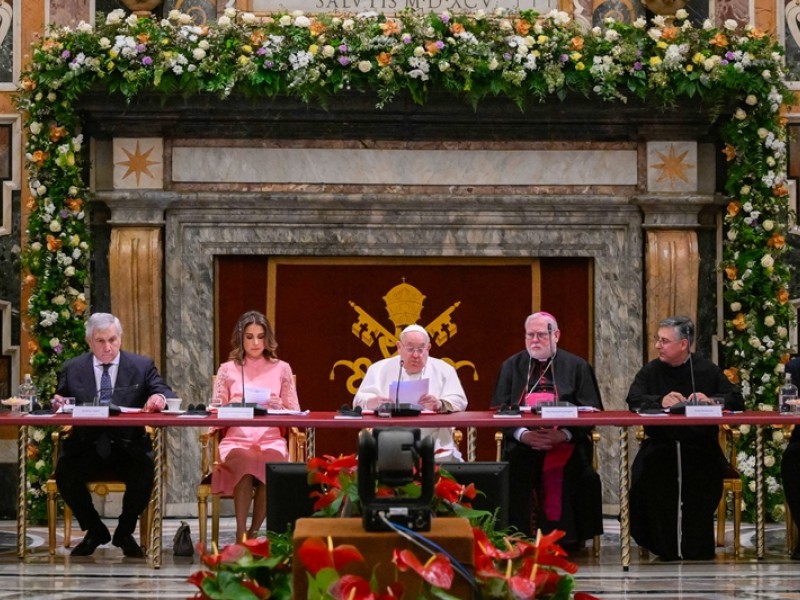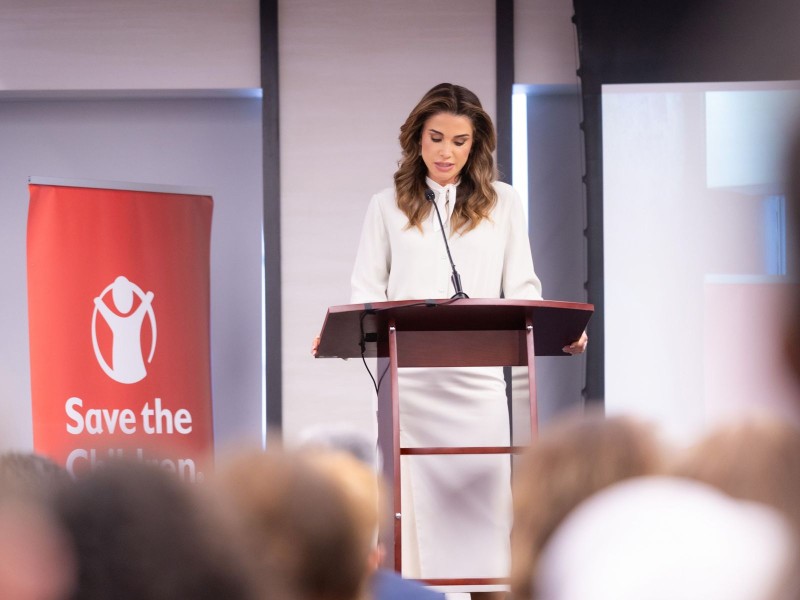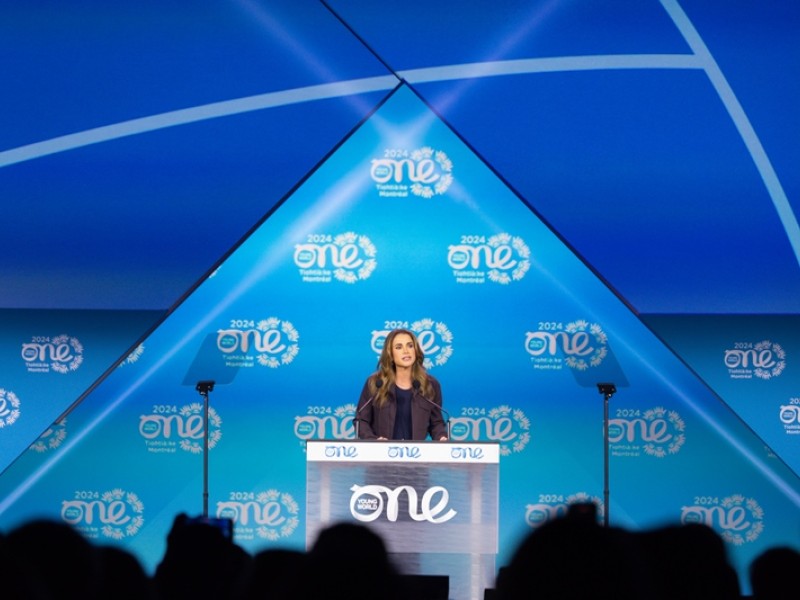Queen Rania’s Speech at the Launch of the Global Endowment for the Poor - LA, USA
Thank you for your warm welcome. I appreciate so much that you’ve shared your time with us.
I am especially grateful to Rosalie Swedlin, Paula Wagner, and Paula Weinstein, who helped make this lunch happen. If our results are even a fraction as successful as their other achievements, we will make an impact we can be proud of.
And I must tell you, I am delighted to be in Los Angeles again. This city feels like it’s been part of my life ever since I saw my first movie. You know, Hollywood is often called the entertainment business, but I feel it is really in the business of connecting. Connecting the world…allowing millions of us to share ideas and experiences and see our common humanity. Half a world away I could watch a movie and laugh and scream with millions of American kids, and planet Earth felt a little bit closer together. And I’m still doing it now, with my own kids.
Consider that one of the things that the Taliban did, when it wanted to cut people off from the rest of the world, was to ban movies. And one of the first things that people did when they could was to open up the cinemas again!
I believe that humanity has a powerful need to connect – to connect with others, to connect with the future. And I don’t need to tell you that people who are unable to connect – who are cut off from opportunity, who are cut off from the future – are the most vulnerable on earth.
Helping renew those connections is why we are here today. Because microfinance is all about connecting…connecting people to the capital they need to control their lives.
Lawrence has told you a little bit about what microfinance is, but I want to talk about what microfinance does.
Let me suggest that today, our greatest challenge is not the digital divide, or the technology gap, or disparities between developed and developing nations. It is not extremists who use religion and politics to foment hatred and violence.
Our greatest challenge is something that lies beneath all these dangers and others. It is the “hope gap”…a gap that separates the world’s people into those who have a future, and those who do not.
The hope gap opens when families are so destitute that they struggle just to survive…when mothers, who have such an important role in the developing world, have no independent means to support themselves or their children.
The hope gap widens when whole communities are left behind…held back by inequitable resources, technology, and education.
And when nations are bypassed by global economic growth…the gap becomes a chasm, into which hope can simply disappear.
Governments and charities spend vast sums and energies to find a way around the problem. But conventional assistance has largely proved to be a detour. The aid mentality simply doesn’t provide the independence and opportunity that people need.
But in my years of working on this problem, in Jordan and around the world, I have seen people leap that gap. They did it through microfinance…the brilliantly simple idea that small loans, on a local level, to individuals, add up to big changes, globally, for millions of people.
Microfinance is not about theories and jobs for bureaucrats. It is about people-to-people partnership – a relationship of respect and responsibility between lender and borrower. It respects what people know and do. That can run the gamut from local crafts to new technology. And it has a unique power to rebuild communities destroyed by violence and disaster.
That’s because it is renewable capital. Loans repaid are cycled back into communities, to generate more jobs, more reconstruction, more hope.
In Kosovo, I visited war-torn communities being rebuilt with big help from small loans. I talked and prayed with Ganimette Mazreku. In 1999, Ganimette’s husband, a factory worker, was seized by Serbian forces. He was marched off in a group of 96 men who have not been seen since.
A despairing Ganimette now had to be the breadwinner for their three children. Traditional aid might have simply supplied it. But then, aid would have ended…and with it, any hope it might have brought. Instead, Ganimette connected with FINCA. And with a $250 microloan, she became a bread-seller – opening a tiny store offering fresh bread, fruits, and vegetables.
Today Ganimette is still in business, now selling hand-made high quality tablecloths. She says that every day, she feels her husband’s guiding hand. And she has confidence she will succeed. FINCA, she says, lets her “look to the future.”
Today, microfinancing can give us new hope for the reconstruction of Afghanistan and other war-torn regions…new hope for women who seek independence and self-worth…new hope for families that are working hard to give their children a future.
Nowhere is money better spent. The self-renewing nature of microfinance means that money contributed is money endowed. A 97 percent repayment rate, worldwide, would make any conventional banker envious.
What’s more, FINCA is as lean as any organization can get. It is global. It is focused. It is respected. Just this December, it was selected by Worth magazine as one of America’s top 100 charities – out of more than 800,000. It was selected for its effectiveness, for its organizational capability, and for its refusal to stray from core business.
So we have the tools, we have the ideas. What is required, now, is us.
Today, I invite you to join me in lending a hand to help millions cross over to a new chance in life.
The Global Endowment for the Poor builds on the proven history of microfinance. The aim is to generate a steady funding stream that will let us reach vastly more people, with ever greater efficiency and impact. As Lawrence mentioned, the Endowment will deliver 97 percent of that loan capital to women…the backbone of families and communities across the world. And it is renewable capital –constantly recycled back into the funding stream by women who have been given a chance to succeed.
To start that cycle, we need only make a connection. I ask you to make that connection, to millions of women and families worldwide.
Help us reach out…and together, we can help transform the hope gap into a hope bridge, connecting people to a world of boundless possibility.
Thank you very much.
مواضيع مختارة
موقع جلالة الملكة رانيا العبدالله الرسمي
هذا الموقع الإلكتروني لا يدعم متصفحات الإنترنت القديمة. الرجاء تحديث متصفح الإنترنت إلى نسخة أحدث من إنترنت إكسبلورر 9
متصفح الإنترنت الذي تستخدمه قديم. لتحسين مستوى الأمان عند تصفح مواقع الإنترنت و مشاهدتها بالشكل الصحيح و بفعالية افضل قم بتحديث متصفح الإنترنت الخاص بك



